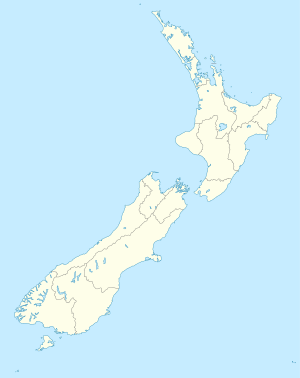| 1992 Benson and Hedges World Cup | |
|---|---|
 | |
| Dates | 22 February – 25 March |
| Administrator(s) | International Cricket Council |
| Cricket format | One Day International |
| Tournament format(s) | Round-robin andKnockout |
| Host(s) | |
| Champions | |
| Participants | 9 |
| Matches played | 39 |
| Man of the Series | |
| Most runs | |
| Most wickets | |
Firsts
The 1992 World Cup was the first to feature coloured player clothing, white cricket balls and black sightscreens with a number of matches being played under floodlights.[1] These innovations had been increasingly used in One Day Internationals since World Series Cricket introduced them in the late 1970s, but they were not a feature of previous World Cups. The 1992 World Cup was also the first to be held in Southern hemisphere. It was also the first World Cup to include the South Africa national cricket team, which had been allowed to re-join the International Cricket Council as a Test-playing nation after the end of apartheid.
Format
The format was changed from previous tournaments in that a complete round-robin replaced the use of two qualifying groups. The initial draw was released with eight competing countries and 28 round-robin matches. In late 1991, South Africa were re-admitted to the International Cricket Council after long years of apartheid and the draw was amended to include them. The revised draw included 36 round-robin matches plus the two semi-finals and the final.
The rule for calculating the target score for the team batting second in rain-affected matches was also changed. The previous rule simply multiplied the run rate of the team batting first by the number of overs available to the team batting second. This rule was deemed to be too much in favour of the team batting second. In an attempt to rectify this, the target score would now be calculated by the "highest scoring overs" formula.
In this system, if the team batting second had 44 overs available, their target score would be one greater than the 44 highest scoring overs of the team batting first. While the reasoning behind the system was sound, the timing of rain interruptions remained problematic: as the semi-final between England and South Africa demonstrated, where a difficult but eminently reachable 22 runs off 13 balls was reduced to 22 off 7 (the least productive over, a maiden, being deducted) and finally 21 off 1 ball (the next least productive over having given 1 run). It was seen that, if the interruption came during the second innings, the side batting second was at a significant disadvantage – one which was only overcome once, in fact, in England's group-stage victory over South Africa.
Teams
The 1992 World Cup featured the seven Test teams of the day, South Africa, who would play their first Test in 22 years in the West Indies a month after the World Cup, and Zimbabwe, who would play their first Test match later in 1992. Teams who entered were:
Australia (winners of the 1987 Cricket World Cup)
England
India (winners of the 1983 Cricket World Cup)
New Zealand
Pakistan
South Africa
Sri Lanka
West Indies (winners of the 1975 Cricket World Cup and 1979 Cricket World Cup)
Zimbabwe.
Venues
Australia
New Zealand
Officials
Umpires
Out of the 11 selected umpires, 2 of them belong to Australia, 2 were from New Zealand while 1 from England, Pakistan, India, West Indies, South Africa, Sri Lanka and Zimbabwe each. The first semifinal was supervised by Steve Bucknor and David Shepherd while Brian Aldridge and Steve Randell supervised the second semifinal.
Steve Bucknor and Brian Aldridge were elected to supervise the 1992 Cricket World Cup final.
| S.No. | Umpire | Country | Matches |
|---|---|---|---|
| 1 | Steve Bucknor | 9 | |
| 2 | Brian Aldridge | 9 | |
| 3 | David Shepherd | 8 | |
| 4 | Steve Randell | 8 | |
| 5 | Khizer Hayat | 7 | |
| 6 | Piloo Reporter | 7 | |
| 7 | Dooland Buulltjens | 6 | |
| 8 | Peter McConnell | 6 | |
| 9 | Steve Woodward | 6 | |
| 10 | Ian Robinson | 6 | |
| 11 | Karl Liebenberg | 6 |
Referees
2 referees were also selected to supervise the semifinals and final. 1st semifinal was supervised by Peter Burge while Frank Cameron supervised the 2nd semifinal.Peter Burge was the referee in the final.
| Referee | Country | Matches | 1992 WC |
|---|---|---|---|
| Peter Burge | 63 | 2 | |
| Frank Cameron | 5 | 1 |
Tournament progression
| ||||||||||||||||||||||||||||||||||||||||||||||||||||||||||||||||||||||||||||||||||||||||||||||||||||||||||||||||||||||||||||||||||||||||||||||||||||||||||||||||||||||||||||||||||||||||||||||||||||||||||||||||||||||||


No comments:
Post a Comment